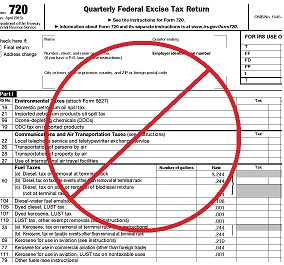
2015 was another of those years with some interesting developments, some good, some bad. The biggest news of the year is that the device tax has been suspended for two years as a result of the budget deal between the GOP-led Congress and the Obama administration, but the tax presumably kicks back in as of January 2018.
That's not necessarily a problem for industry if recent electoral trends hold. One question is why the administration agreed to the device tax suspension despite President Obama's avowed opposition to any change to the tax. The answer starts with the fact that President didn't have to deal with a full-blown repeal of the device tax, and a veto of the spending bill would have brought the government's operations to a halt.
This time, though, the government shut-down would have hurt the President and his party rather than the Republican Party as an election year approached, so one assumes the President dared not veto a spending bill over a two-year suspension of the device tax.
An electoral blast from the past favors repeal
So what has to happen to create a full-blown repeal of the device tax? A lot of that is in the hands of the voters, but there is some reason for optimism on the part of those opposed to the tax. It will help to have a Republican in the White House in 2017, of course, but the GOP might only have to hold the House of Representatives rather than both the Senate and the House.
In the years since 1944, each party has held the office for two consecutive terms, albeit with two exceptions. The first came in 1980 when Jimmy Carter lost his re-election bid to Ronald Reagan, giving Democrats only one term. The second exception arose in 1988, when the GOP won a third consecutive term in the election pitting George H. Bush and Michael Dukakis. If the overall trend holds, the GOP will reclaim the White House in 2016 and the new president will presumably be amenable – or at least not adamantly opposed – to a deletion of the device tax.
As for Congress, the story goes that mid-term elections are tough on the party that holds the White House, but the following election, if it comes at the end of one party's eight-year hold on the White House, might help the out party again. For example, the Democratic Party did quite well in the 2006 mid-term election for George W. Bush's second term, and Democrats again gained seats in the 2008 general election, when Barack Obama was first elected.
On the other hand, the Republican majority lost ground in the House to Democrats in the 1998 elections when Bill Clinton was halfway through his second term, and the GOP lost more ground in 2000 when Bush II was elected the first time. Nonetheless, the Republican Party managed to hold onto a thin majority in both instances.
Strength in congressional numbers, but ...
The GOP currently sports a 247-188 edge over the Democratic Party in the House, making a change in party power a very difficult pull. The picture in the Senate is somewhat different. Republicans hold a 54-46 edge on that side of Capitol Hill, although 24 members of the GOP are up for re-election compared to only 10 Democrats.
Still a large number of Senate Democrats have previously indicated strong support for repeal, including even Massachusetts Democrat Elizabeth Warren, who is nobody's idea of a Wall Street lackey. One assumes that med-tech state Senate Democrats such as Minnesota's Amy Klobuchar and Al Franken will have little reason to waver from their previous support, making a Senate repeal a less-than-onerous task.
The real wild cards in all this are the presidential primaries. Hillary Clinton is the presumptive nominee for the Democratic Party, but she has an FBI investigation into her private e-mail server and the associated classified documents hanging over her. Still, few expect Vermont's Bernie Sanders to overtake Clinton unless something very damaging arises from the FBI investigation, which cannot be ruled out.
On the GOP side, Donald Trump has demonstrated more staying power than many expected, although some think much of his support will slough off as the primary season unfolds. Trump's support in a general election is likely to be much thinner as minorities and women are likely to vote for anyone but the brash millionaire, all of which makes the next presidential election a difficult event to forecast (it might be reasonable to speculate that another President Clinton would not be opposed to a full repeal of the tax, but that's tough to predict as she avoided the question in an appearance at AdvaMed 2014).
All things considered the odds are very good the device tax will die once and for all in 2017, but the highly unpredictable race for the White House likely will prove the decisive event in that effort.
